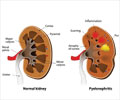Meropenem and Vaborbactam Medication Information
Discover comprehensive details about Meropenem and Vaborbactam, including its pronunciation, uses, dosage instructions, indications, and guidelines on how and when to take it or avoid it.
The updated prescription information covers potential side effects, precautions, warnings, and storage recommendations.
Additionally, explore the Meropenem and Vaborbactam brands available in India and internationally, along with pricing information. For personalized advice, consult your healthcare provider.
Generic Name : Meropenem and Vaborbactam Pronunciation : mer-oh-PEN-em and va-bor-BAK-tam Therapeutic Classification : AntibioticsBrand Names or Trade Names of Meropenem and Vaborbactam
India :
Vabomere
Overview of Meropenem and Vaborbactam
• Meropenem and vaborbactam is a fixed dose combination drug which was approved by US FDA in August 2017 for treating complicated urinary tract infections.Why is Meropenem and Vaborbactam Prescribed? (Indications)
Meropenem and vaborbactam is a combination of a penem antibacterial and β-lactamase inhibitor which is prescribed to treat complicated urinary tract infections and pyelonephritis caused by susceptible bacteria in patients 18 years of age and older.Meropenem works by killing bacteria and vaborbactam acts by preventing the bacteria from deactivating or destroying meropenem.
When should Meropenem and Vaborbactam not be taken? (Contraindications)
Meropenem and vaborbactam combination should not be used in patients with-• Hypersensitivity to meropenem and vaborbactam or any other β-lactams
• Viral Infections such as common cold or flu
• History of seizures
• Children below 18 years of age
What is the dosage of Meropenem and Vaborbactam?
• The recommended dose of this fixed dose combination is 4 grams (containing 2 g of meropenem and 2 g of vaborbactam) which is administered three times daily by intravenous infusion.• The duration of treating with meropenem and vaborbactam is for up to 14 days.
• Dose adjustment is required in patients with kidney disorder based on the estimated glomerular filtration rate (GFR).
Estimated GFR at least 50 ml/min/1.73m2 - no dose adjustment needed
Estimated GFR 30 to 49 ml/min/1.73m2 - 2 g three times daily
Estimated GFR 15 to 29 ml/min/1.73m2 - 2 g twice daily
Estimated GFR less than 15 ml/min/1.73m2 - 1 g twice daily
How should Meropenem and Vaborbactam be taken?
• Meropenem and vaborbactam injection is available as a powder for reconstitution which has to be mixed with 0.9% sodium chloride injection.• Mix the contents of the vial gently and dilute further with 0.9% sodium chloride injection to achieve meropenem and vaborbactam concentration of 0.05 g/ml each; this should be transferred into an intravenous bag for infusion.
• The infusion must be administered directly into the vein over a period of 3 hours.
• The infusion should be inspected for the presence of particulate matter or discoloration before administering and should be discarded if present.
What are the warnings and precautions for Meropenem and Vaborbactam?
• Seizures or other CNS disorders may occur during the treatment with meropenem and vaborbactam.• Patients should be evaluated neurologically, and dose can either be reduced, or the treatment can be discontinued.
• Patients should be evaluated for Clostridium difficile-associated diarrhea during the treatment and if the condition is present, should be treated with adequate fluid and electrolyte management, nutritional supplementation or drug therapy.
• Patients are advised not to drive or operate heavy machinery as meropenem and vaborbactam can interfere with mental alertness and may cause motor impairment.
• Meropenem and vaborbactam should be prescribed only after the confirmation of a string suspected bacterial infection to avoid drug-resistant bacteria.
• Prolonged use of meropenem and vaborbactam may result in overgrowth of nonsusceptible organisms or superinfection, and repeated evaluation is necessary during the therapy.
• Decreased level of platelets was observed during the treatment with meropenem particularly in patients with kidney disease.
What are the side effects of Meropenem and Vaborbactam?
Common: Swelling, pain or irritation at the injection site, headache, diarrheaGastrointestinal: Stomach pain, loss of appetite
Cardiovascular: Deep vein thrombosis, vascular pain, decrease in blood pressure, decreased potassium level in blood
Nervous system: Dizziness, seizures, hallucination, lack of sleep, tremor, lethargy
Respiratory: Pharyngitis, difficulty in breathing, chest pain
Others: Rash, urticaria, fever, increased levels of liver enzymes, decreased blood cell counts such as thrombocytopenia, anemia, neutropenia
What are the other precautions for Meropenem and Vaborbactam?
• Meropenem and vaborbactam powder for injection should be mixed only with 0.9% sodium chloride solution and not with any other liquids.• If any allergic or serious skin infections occur during the therapy, discontinue the treatment with meropenem and vaborbactam and treat accordingly.
• Use a separate IV bag or catheter while injecting meropenem and vaborbactam combination to avoid serious side effects or interactions.
What are the Drug Interactions of Meropenem and Vaborbactam?
• There is a decreased concentration of drugs such as valproic acid or divalproex sodium when used along with meropenem, resulting in low anti-convulsant activity, which may require additional anti-convulsant treatment.• Meropenem, when taken with probenecid, increases the concentration of meropenem, and the combination should be avoided.
What are the storage conditions for Meropenem and Vaborbactam?
• Store meropenem and vaborbactam vials at room temperature between 20°C and 25°C.• The diluted solution should be used within 4 hours if kept at room temperature and used within 22 hours if stored in a refrigerator at temperatures between 2°C to 8°C.
• Protect from excess heat and moisture.
• Do not freeze the vials or the infused solution.
 MEDINDIA
MEDINDIA
 Email
Email







